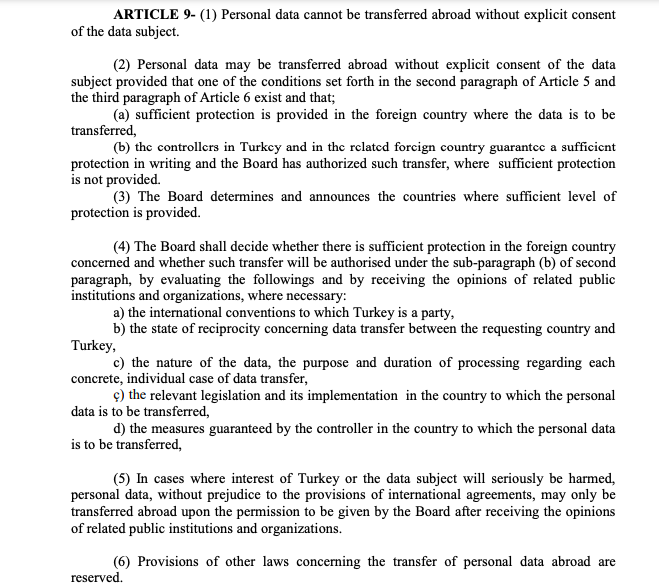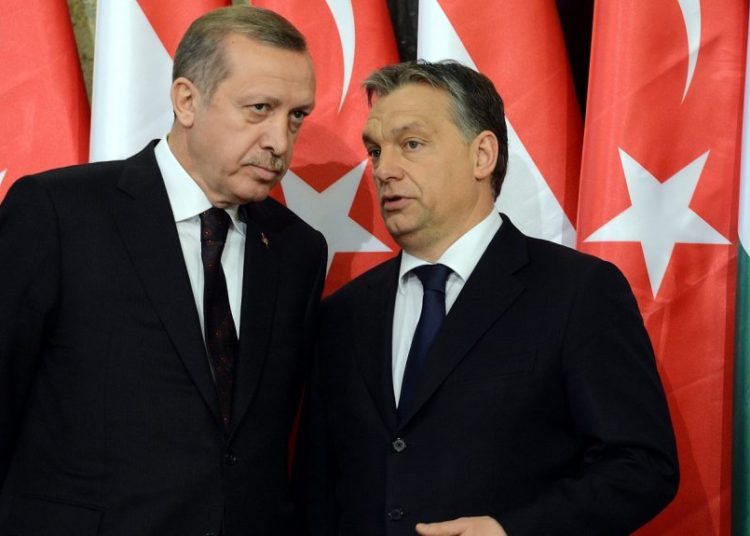Levent Kenez/Stockholm
Turkish Interior Minister Süleyman Soylu said last week that Turkey and Hungary are negotiating to print each other’s passports in the event of an emergency, during a press conference in which he introduced new, locally made and modernized passports. The intended agreement paves the way for the two countries to transfer their citizens’ personal information to each other.
Considering that the Turkish opposition claims the government will secretly give citizenship and identity cards to Syrian refugees in particular before the elections in 2023, the fact that the European country with which Turkey will share its citizens’ personal data is Hungary, run by authoritarian Prime Minister Viktor Orbán, who is close to Islamist President Recep Tayyip Erdoğan, raises concerns. In addition to drawing attention for their closeness to Russia, the two leaders are frequently on the agenda with their human rights violations and unlawful pressure on the opposition at home.
“We are signing an agreement with Hungary. Within the framework of this agreement, we are establishing a disaster recovery unit to print each other’s passports. We are negotiating with Hungary. When there is a shortage at our passport printing centers, we will have the ability to print each other’s passports. We have been working with Hungary on this for a long time. They have a positive view of it, and so do we,” Soylu said.
Turkey has been obtaining passports with chips from a European company, like 18 other countries. “However, due to the chip shortage globally, this company has been facing difficulties meeting passport demands,” Soylu also said while highlighting the work done to produce Turkey’s own passports.
Information technology experts approached by Nordic Monitor think that Turkey does not need another country for any emergency. They claim that Turkey is a geographically large country and that it can establish a backup center in another city far from Ankara for the printing of passports and ID cards in the event of an emergency. They also claim that this can be done inexpensively by distributing some of the equipment in the existing printing center in Ankara to another city.

Reminding that the General Directorate of Population and Citizenship Affairs, which is authorized to print ID cards, has a backup center in Konya, a city near Ankara, experts say another city could be chosen for a similar worst-case scenario for passports.
Experts also claim that the security of personal data is compromised after transferring it to another country. They note that developed countries make legal arrangements to keep citizens’ personal information on servers in their own countries and that even Turkey forced foreign social media companies to do so recently.
According to Turkey’s Law on The Protection of Personal Data enacted in 2016, any information that makes a person identifiable directly or indirectly is interpreted as personal data including ID number, photo, mobile phone number, e-mail address and health and financial documents. The law ensures that personal data cannot be transferred abroad without the explicit consent of the data subject.
However, the law has some exceptions. If sufficient protection is provided in the foreign country where the data is to be transferred, or the controllers in Turkey and the related foreign country guarantee sufficient protection in writing, the personal data may be transferred. The international conventions to which Turkey is a party or the state of reciprocity concerning data transfer between the requesting country and Turkey are also exceptions specified in the law.
Turkey is among countries with serious problems in personal data security. It is claimed that the government portal E-devlet, where citizens’ information is stored, has been hacked numerous times. Most recently, journalist ibrahim Haskoloğlu reported a hacker group that had infiltrated Turkey’s online databases and had access to the identity and other personal information of Turkish citizens on April 12.
Haskoloğlu shared purported photos of President Recep Tayyip Erdoğan and National Intelligence Organization (MIT) Undersecretary Hakan Fidan’s ID cards, with most of the information on them blacked out, as proof of his claims.
The Interior Ministry had filed a complaint about Haskoloğlu due to his posts, which prompted an investigation by the Istanbul Chief Prosecutor’s Office, and the journalist was arrested on April 19 on charges of illegally obtaining and disseminating personal information in his social media posts. He was released on April 27.
It is frequently claimed that information about Turkish citizens is sold on the black market on the Internet.
IT experts say Turkey’s data sharing with another country will put its already troubled information security at even more risk.
Meanwhile, the Turkish opposition alleges that the government, by granting citizenship to Syrian refugees, plans to benefit those who support Erdoğan in the coming presidential election.
The increase in the number of Syrians among those waiting in line at Population and Citizenship Affairs offices has frequently been on the agenda on social media. It is claimed that since the location of the votes cast in the presidential election do not matter, new citizens will be included on voter registration lists in particular in highly populated metropolitan cities.
The agreement to be made with Hungary may be used to secretly print identity cards for Syrians if the government plans to give citizenship to Syrians without being noticed by the opposition before the elections. Minister Süleyman Soylu announced that 113,654 Syrians who have become naturalized Turkish citizens are eligible to vote in the elections.












